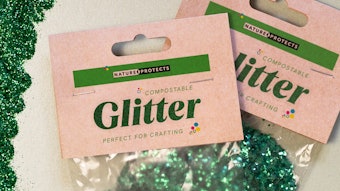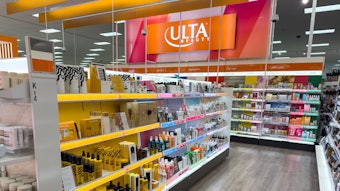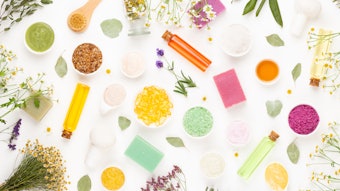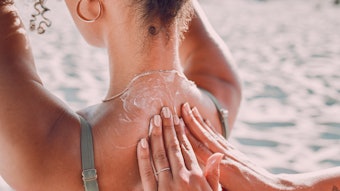
Claiming that a product purchase will be the key to happiness has been around since at least the time Jack traded his milk cow for magic beans. For the most part, consumers simply recognize the hyperbole as part of marketing-speak, but that doesn’t stop beauty and personal care brands from following this well-worn strategy. Suggesting joy and self-confidence can be found in a bottle of skin cream is common practice.
What is different today about the industry’s happiness conversation, however, is its connection not to superficial goals but to a deeper sense of well-being and stress relief in an overscheduled and sometimes overwhelming world. The most successful beauty brands are able to demonstrate empathy with consumers and their emotional state, inspiring trust and loyalty.
It would be easy to see this emphasis on happiness as a response to the COVID-19 pandemic and the resultant increase in anxiety and isolation, but this beauty trend has been on the horizon for many years, coinciding with the positive social movement to discuss and destigmatize mental health. Back in 2017, for example, Hallstar Beauty conducted one-on-one interviews with dozens of industry experts and practitioners, aiming to identify the megatrends that could influence our product development and marketing messaging. From a 2021 vantage, the surfaced trends were no surprise: health and wellness, sensorial experiences, culture fusion, protection from the elements and sustainability. But what was interesting is how these expert interviewees framed many of these trends in terms of emotional benefit.
Dr. Karl Lintner, a former CEO and technical advisor at Sederma/Croda, told us that he sees traditional product claims around function and efficacy expanding (or perhaps returning) to the importance of sensory and hedonics.
“We have seen all of the techniques and things we can claim about ingredients and their activity,” Lintner said. “…we should come back to the main purpose of cosmetics—that is, the pleasure, the well-being provided by the products. Now there are scientific studies on measuring the pleasure for these products. Coming back to the textures and psychological benefits is certainly a growing trend.”
Researchers at Mintel also covered the slow beauty trend extensively pre-COVID, describing it as an emphasis on de-stressing, happiness-inducing, sleep-encouraging claims.
“Happiness shapes the way we perceive our surroundings,” they wrote, “But in an ever-pressured world, people are seeking solutions for stress relief. Beauty and personal care brands can provide the feel-good factor with therapeutic solutions that focus on stress relief and encouraging mindfulness and mood enhancement.”
Finding joy in beauty
As Dr. Lintner and so many others have observed, the sensorial experience of a beauty regimen—whether through aromatherapy, makeup colors, comforting textures or just the daily routine itself—can undeniably impact our mood. Simply put, using products is enjoyable for people and having a beauty treatment makes them feel happy (Mintel, 2019). Sensoriality is becoming more than veiled claims but a scientific and clinical imperative to drive consumer allegiance.
Hallstar Italia was certainly influenced by this maxim when developing new functional naturals like water-in-oil cold process emulsifier Olivem 2090 (INCI: Polyglyceryl-4 Olivate/Polyricinoleate) and active emollient Sensolene Light ET (INCI: Ethyl Olivate, Olea Europaea (Olive) Leaf Extract), both of which impart a remarkably smooth, light texture to formulations. These new ingredients are well-matched to a rise in the use of intense conditioning treatments, face masks and products, as consumers look to home treatments for therapeutic comfort and wellbeing (“COVID-19 drives preventative measures in personal care,” Mintel, 2020).
‘La vie en rose’
Psychodermatology may be a relatively new discipline but it focuses on the long-observed mutual impact of happiness and beauty. We know that skin diseases can be precipitated or exacerbated by psychological stress and that, conversely, emotional problems are more prominent as a result of having skin issues (“Psychodermatology: When the Mind and Skin Interact,” Psychiatric Times, 2011). Now the intuitive connection between appearance and positive emotions is proven to be more than a cosmetic issue.
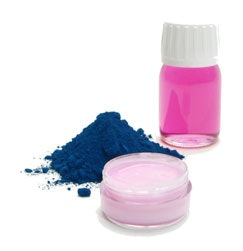 When creating BLUSH Oléoactif, our newest all-natural active ingredient, Hallstar France was able to demonstrate how improvements in the clinical signs of sensitive skin could bring positive emotional benefits. Test subjects’ verbatim responses to seeing their reflection in the mirror, often a highly emotional exercise, were submitted to a quantitative statistical analysis. The results showed clearly that BLUSH Oléoactif improves, at the clinical level, skin condition, general emotional state and self-perception. Further, the Mirror Test™ corroborated the results of an earlier in vivo study showing that BLUSH Oléoactif visibly reduces redness and protects the skin barrier, promoting a healthy appearance.
When creating BLUSH Oléoactif, our newest all-natural active ingredient, Hallstar France was able to demonstrate how improvements in the clinical signs of sensitive skin could bring positive emotional benefits. Test subjects’ verbatim responses to seeing their reflection in the mirror, often a highly emotional exercise, were submitted to a quantitative statistical analysis. The results showed clearly that BLUSH Oléoactif improves, at the clinical level, skin condition, general emotional state and self-perception. Further, the Mirror Test™ corroborated the results of an earlier in vivo study showing that BLUSH Oléoactif visibly reduces redness and protects the skin barrier, promoting a healthy appearance.Download the clinical data for this new, pink-colored liposoluble active to see how it allows even the most appearance-anxious users to make peace with their sensitive skin.
Disclaimer:
The above paid-for content was produced by and posted on behalf of the Sponsor. Content provided is generated solely by the Sponsor or its affiliates, and it is the Sponsor’s responsibility for the accuracy, completeness and validity of all information included. Global Cosmetic Industry takes steps to ensure that you will not confuse sponsored content with content produced by Global Cosmetic Industry and governed by its editorial policy.

